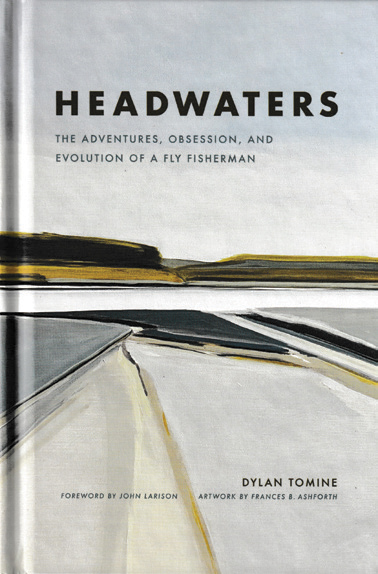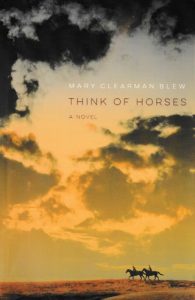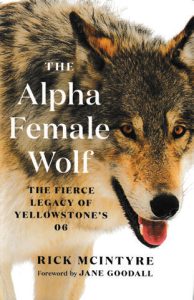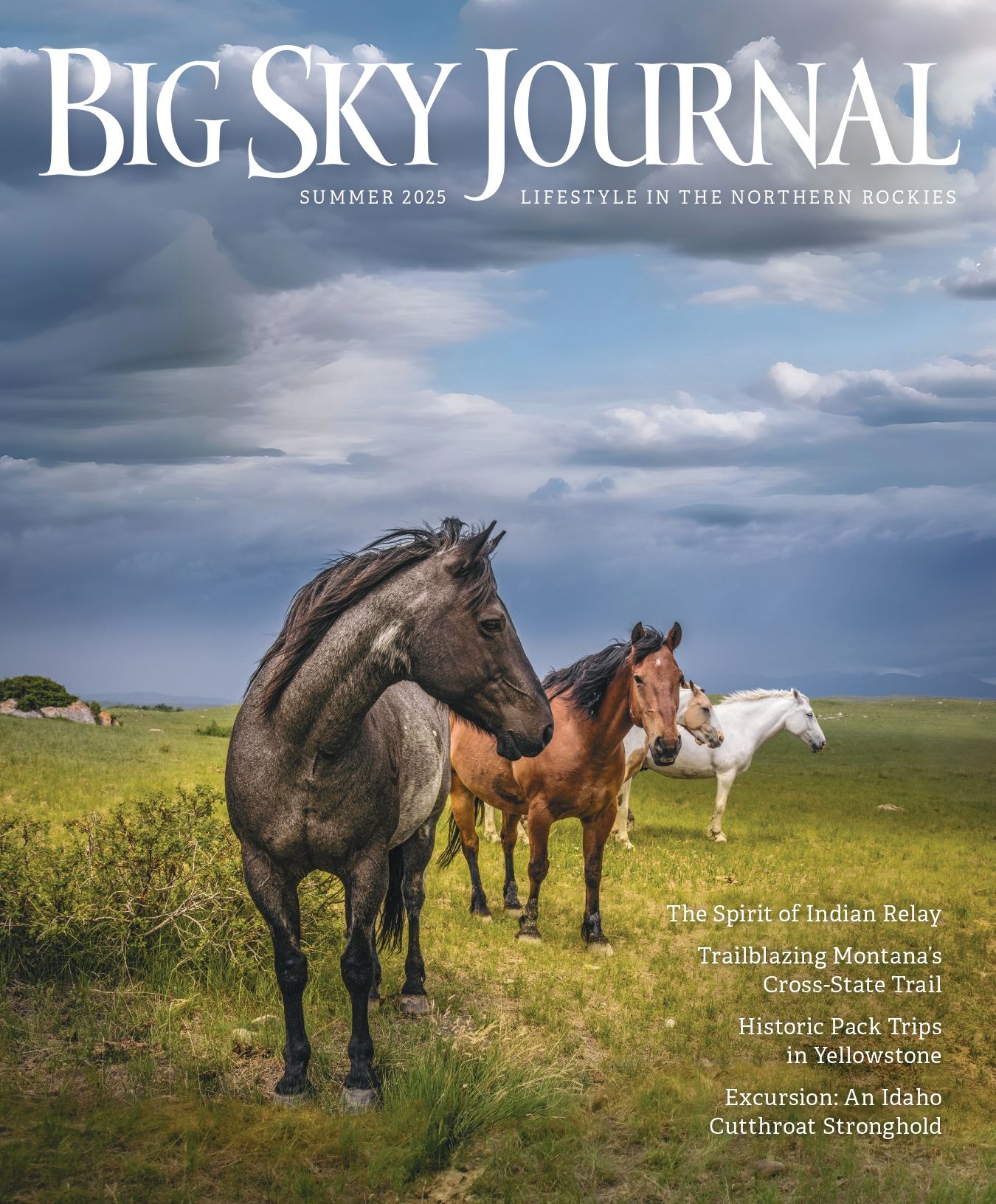
02 Feb Books: Reading the West
In Headwaters: The Adventures, Obsession, and Evolution of a Fly Fisherman (Patagonia, $27.95), Dylan Tomine casts a line into his life of angling adventures with vivid detail, political and environmental astuteness, and wonderfully infectious humor. The narratives collected here take the reader all over the world, from the Russian Arctic to the Patagonia region of Argentina, from the Olympic Peninsula to the mountains of central Japan — anywhere there’s a stream holding steelhead, salmon, or trout.
Even a non-fishing reader will thrill at the remote locations, precarious journeys, dangerous weather, and stunning backdrops superlatively described here. A fishing person will be constantly torn between not being able to put the book down and wanting to drop it to grab a favorite fly rod and head to the nearest body of water.
Tomine recreates each cast in wonderful detail, and many of the most enjoyable moments are when a seemingly perfect cast is followed by … nothing — no flash of silver breaking from the water, no snap of line or arc of rod, no exultant cry of “Fish on!” It’s in these times of getting skunked (and/or swamped, soaked, devoured by mosquitos, lost in the dark, etc.) when his humor hits its full stride. These utterly delightful moments reassure us that even the great anglers have their off days, which makes the good days — filled with dream-come-true, larger-than-life fish — all the more wondrous.
However, what makes this book rise above simple fish-story glory speckled with comic relief is Tomine’s informed and frank examination of the toll that fishing culture has taken, and is taking, on the environments and populations upon which it depends. He takes a stand against overfishing and habitat destruction; laments, yet understands, the need for river closures and limited seasons; and blasts the costs — both financial and environmental — of the fish hatchery model. That he draws these criticisms from a deep and obvious love of fishing makes them all the more compelling.
After describing with rich imagery the joy of fishing one of his favorite rivers, Washington’s Skykomish, he reveals that the river was closed to fishing after the 2000 season: “Heartbreaking?” he writes. “I can’t even find words for how I feel about it.” Though he claims elsewhere to be “just a fisherman and a father, not a biologist,” Tomine goes on to illuminate with indisputable clarity how development, industrialization, bureaucratic mismanagement, and climate change have forced the closure of his home river. He also discusses a path back to healthy rivers and watersheds, and concludes, “My hope is that we can work together as concerned anglers and citizens and someday set the stage for these magnificent fish to return in truly healthy numbers. I plan to be there when they do.”
Headwaters gives us all hope for this return and illustrates the joy of being there to see it. Fish on, indeed.
OF NOTE
Poetry flows effortlessly into prose in Chris Dombrowski’s The River You Touch: Making a Life on Moving Water (Milkweed Editions, $25). In this thoughtful memoir, the poet/fishing guide navigates the currents of family and career, while struggling to stay true to his dual calling as a writer and sportsman. He poses the question of how a life can best be lived “on this small planet … in the Anthropocene?” The entire book then serves as an answer — from mindfully (and fearfully) raising children, to surrounding oneself with cherished friends who share a love for the natural world, to spending every important moment possible outdoors — whether fly fishing a Montana river with Jim Harrison or watching the moon set through a “soft and dense” snowfall over northern Lake Michigan. His answer boils down to recognizing the land as our “earliest predecessor” and listening to it as such. With lyrical language and vivid color, the book becomes more than a memoir — it serves as a guidebook to a life of authenticity and connection.

Returning home is seldom what we think it will be. This proves poignantly true in the new novel by Mary Clearman Blew, Think of Horses: A Novel (University of Nebraska Press, $21.95). Tam Bowen, a writer of steamy romance novels whose urban, coastal life and unfulfilling career are in upheaval, has landed at her childhood cabin nestled in Montana’s Snowy Mountains. She quickly and reluctantly is drawn into the deadly rivalries and seething passions of the locals — some new to “Sun Creek country,” as it’s been called for as long as anyone remembers, and some whom Tam has known all her life, whether she’s able to admit it or not. The latter include an unhinged ex-husband and the angry, tormented result of their union in the form of a now-grown, estranged son. Throughout Tam’s journey of forging new relationships and repairing some of the old ones, it’s a return to daily riding and caring for horses that reminds her how to navigate a precarious life. On horseback, one can’t be preoccupied with doubts and fears — the horse demands one’s full attention. As her late father, Hube the horse breaker, once told her, “She’d be all right on the gelding as long as she kept her mind on what she was doing.” Ultimately, Think of Horses — the novel — is as satisfyingly enjoyable as “think of horses” — the advice — is sound.

High drama in our first national park unfolds in Rick McIntyre’s The Alpha Female Wolf: The Fierce Legacy of Yellowstone’s 06 (Greystone Books, $27.95). McIntyre has arguably logged more hours studying these charismatic and controversial predators than any person alive, and he combines the unique insight gained from this attention with a sublime storyteller’s craft to give us an unparalleled and empathetic portrait of Yellowstone’s wolves. Seen through McIntyre’s eyes, Wolf 06 and her packmates are revealed as fully realized creatures, with all the passions, loyalties, and emotional depth of his two-legged readers. Whether one loves wolves or fears them, it would be impossible to read this book and regard them as unworthy of respect and consideration. It’s also impossible to read this book and not be at least tempted to step outside into the glow of the moon and have a good howl.

Marc Beaudin is a poet, theater artist, and bookseller based in Livingston, Montana. He has contributed to numerous publications, written two books — Life List: Poems and Vagabond Song: Neo-Haibun from the Peregrine Journals — and his work has been included in anthologies dedicated to environmental and social justice.




No Comments